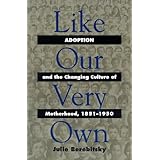
Average Reviews:

(More customer reviews)Are you looking to buy The Richest Man in Town: The Twelve Commandments of Wealth? Here is the right place to find the great deals. we can offer discounts of up to 90% on The Richest Man in Town: The Twelve Commandments of Wealth. Check out the link below:
>> Click Here to See Compare Prices and Get the Best Offers
The Richest Man in Town: The Twelve Commandments of Wealth ReviewHave you noticed that almost no one ever seems to ask the rich about the subject they know best?No, on the "Fiddler on the Roof" theory --- "When you're rich, they think you really know" --- the rich get to sound off on all manner of topics outside their expertise. We're regularly served their views on inheritance taxes, wars, medical research and the arts. What's harder to ferret out: what they know about becoming and staying rich.
Randy Jones --- W. Randall Jones to you, but I once worked for him when he was the publisher (and founder) of Worth Magazine --- got interested in money when he was a kid in Georgia. As far as I can tell, he has amassed piles of it. In addition to the duplex in Manhattan, there's a house in Westchester. I doubt his kids have ever been shamed by clothes from The Gap. And his wife needed an operation on her earlobes a while back, thanks to decades of wearing earrings encrusted with massive diamonds. (No. Not really. But you get the idea.)
A few years ago, Jones decided to write a book about his favorite obsession: how you make money. In 'The Richest Man in Town: The Twelve Commandments of Wealth', he crisscrosses America to interview a slew of self-made millionaires. (Actually, the poorest of the people he interviews has at least $100 million.) Then he divides their knowledge into buckets --- "the twelve commandments of wealth".
It's a simple structure. It's a simple book. There's almost nothing here that you haven't read, heard or thought before.
So why aren't you rich rich rich?
For one thing, you may be confused. "It's good to be rich" is not the same as "Greed is good", but because so many of the visible rich are selfish bastards who would greatly benefit from a stunning increase in the tax rate, it's easy to think that wealth and bad values go hand in hand. "Yeah, I'll have no money worries if I get rich," you think. "But I'll also be a jerk."
Not so, Jones says. Wealth is the byproduct of worthy activity. It's what happens when you perform a useful service or make a decent product, then market it aggressively and treat customers decently. It's about Right Livelihood, not pursuit of money. Sharks may score big for a while, say Jones and his interviewees, but over the long haul it's the good people who win biggest.
And good people don't put "success" and "wealth" in the same sentence. They measure success by satisfaction: their pleasure in the enterprise they've created, in the work they do each day, in their families and their causes. The high life in the big city? Most shudder at the prospect --- they're still living in their hometowns.
Each chapter in "The Richest Man in Town" is peppered with anecdotes, and they serve that chapter's commandment. Don't work for other people. Trust yourself. Be obsessive. (Robert Stiller sold his first company --- he made EZ Wider "cigarette" papers --- and started Green Mountain Coffee Roasters, which required him to use every dollar he ever made and go out to sell the product himself.) Early work experience gives you a solid work ethic. (Your kid is 14 and still going to summer camp?) Education matters; Harvard doesn't. Take care of your health.
A lot of kids will be given this book for graduation, birthdays and holidays. Good. They'll get something out of it. And so will Randy Jones, who not only has made a very good product here but made very sure I got a copy.
The Richest Man in Town: The Twelve Commandments of Wealth OverviewSecretly, if not overtly, almost everyone in America desires to become rich: to make it big, to enjoy the fruits of the most successful life imaginable. But unfortunately, most of us don't have a clue how to reach these all too elusive goals. Quite simply, there's no definitive road map for getting there, no proven plan, and certainly very little access to those who have become "the richest man in town."But now W. Randall Jones, the founder of Worth magazine, is about to change all that. He's traveled to one hundred different towns and cities across the country and interviewed the wealthiest resident in each. No, these are not those folks who inherited their wealth, or happen to be a CEO of a Fortune 500 company. Rather, these are the self-made types who, through hard work and ingenuity, found their own individual paths to financial success.Remarkably, during his research, Jones found that these successful people were not so different from one another. They all shared many of the same traits and followed what the author calls the Twelve Commandments of Wealth: stay hungry (even when you're successful) . . . you really do learn more from failing than you may think . . . absolutely be your own boss, the sooner the better . . . understand that selling is the key to success . . . where you live doesn't matter . . . never retire, and other, more surprising revelations. Practical, unique, and inspiring, this book lets you peek inside the living rooms of dozens of America's most successful people-and shows how you, too, can become THE RICHEST MAN IN TOWN.
Want to learn more information about The Richest Man in Town: The Twelve Commandments of Wealth?
>> Click Here to See All Customer Reviews & Ratings Now

